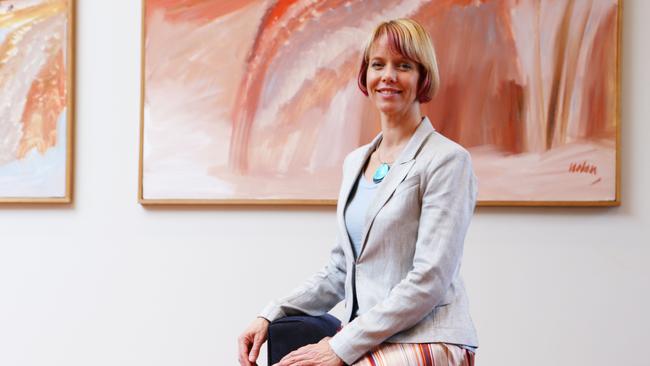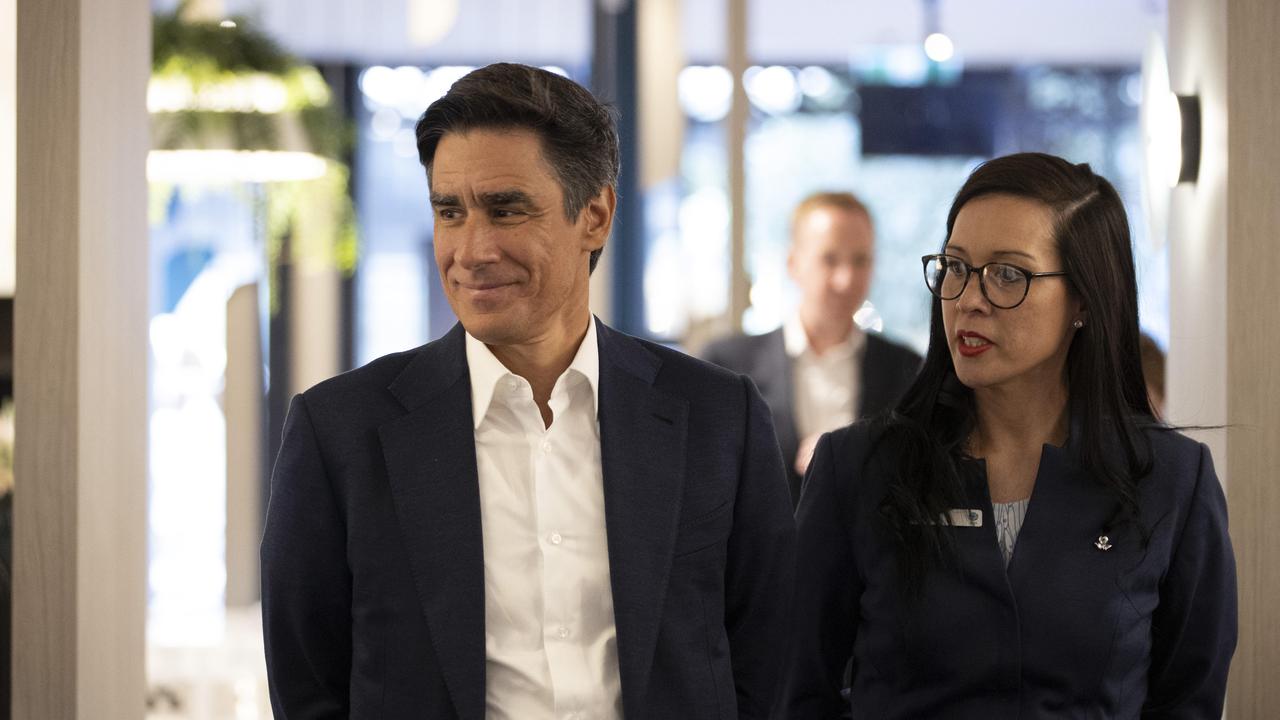Melinda Howes urges super funds to embrace the change
Westpac’s BT Financial Group’s Melinda Howes says high-quality funds have nothing to fear from proposed reforms.

Melinda Howes, head of superannuation at Westpac’s BT Financial Group, says high-quality funds have nothing to fear from proposed reforms by the Productivity Commission, which is seeking to break the industrial award domination of the $500 billion default fund market.
“Whichever model ends up going ahead, there is a real focus on quality,” Ms Howes told The Australian. “Any super fund that is of high quality should be embracing that change,” she said.
The commission has proposed four different models to crack open the $2.1 trillion super industry, overhauling the way the $500bn default market is allocated — where the savings of the least informed and engaged super members are handled. Union and employer-backed industry funds have gone on the offensive over the proposals — the majority of default assets go to funds brokered through enterprise bargaining agreements — while bank-owned retail funds have generally welcomed the chance to compete in an open market.
“This isn’t about industry funds versus retail funds; a fund that is a high quality fund should have nothing to fear from this and should be embracing it. We don’t think any good quality fund has anything to fear from a system which selects the best quality funds,” Ms Howes said.
One key part of the commission’s proposals is a plan to stop the proliferation of multiple super accounts, which often are lost or forgotten.
In doing so the commission argued that workers who fail to choose a fund should be allocated a default product only once and retain that account until they choose to switch to a different fund.
“Multiple accounts are a big issue,” Ms Howes said. “The focus on solving the multiple account problem by saying you’re only a default member once when you first enter the work force — that’s a big sensible public policy measure.
“It’s interesting that you’ve seen a strong anti-campaign from the industry fund sector against these measures,” she said. “If they think they’re quality funds they should have nothing to fear from this process.
“It’s clear that this is going to be in members’ best interests. Why funds would be using money to pay for an advertising campaign against measures that are in members’ best interest seems really illogical.
“We’re not going to publicly sledge the arrangement when it’s going to be good for members. There are bits we agree with and there are bits we don’t agree with, but overall, it’s good policy.”
Data from the prudential regulator shows industry funds receive the lion’s share of employer contributions — a proxy for the amount of default super flows.
About 80 per cent of workers accept their employers’ preferred funds, which are often brokered through enterprise bargaining agreements. Industry funds received more than $30bn in default flows last financial year — 50 per cent more than retail funds, which garnered $21bn.
Industry funds have launched television advertisements warning consumers of lower-on-average investment returns under bank-owned funds, which have generally underperformed industry funds by an annual rate of 1 per cent over 10 years. Retail funds argue that as bond yields rise and infrastructure value falls, performance will become more balanced as equities outperform more illiquid investments. Retail funds hold a greater share of assets in equities as they lack the benefit of a certain flow of funds through default allocation.
Equity investments are also far cheaper than expensive investments in infrastructure, which have outperformed the market in recent years.
BT Financial manages about $7bn in super assets for individuals and a number of corporate nest eggs. Ms Howes said customers also valued convenience and simplicity, in which Westpac had invested strongly.
The most recent Roy Morgan customer satisfaction figures show retail funds have overtaken industry funds, with nearly 59 per cent satisfied with their fund. Public sector funds still lead the pack with nearly more than two-thirds of members satisfied
Westpac is able to combine multiple super accounts into one fund in a matter of moments through its banking app. About 10 per cent of people who use the service have decided to consolidate an average of $20,000 with the bank. The service will be rolled out across Westpac’s corporate super customers.



To join the conversation, please log in. Don't have an account? Register
Join the conversation, you are commenting as Logout